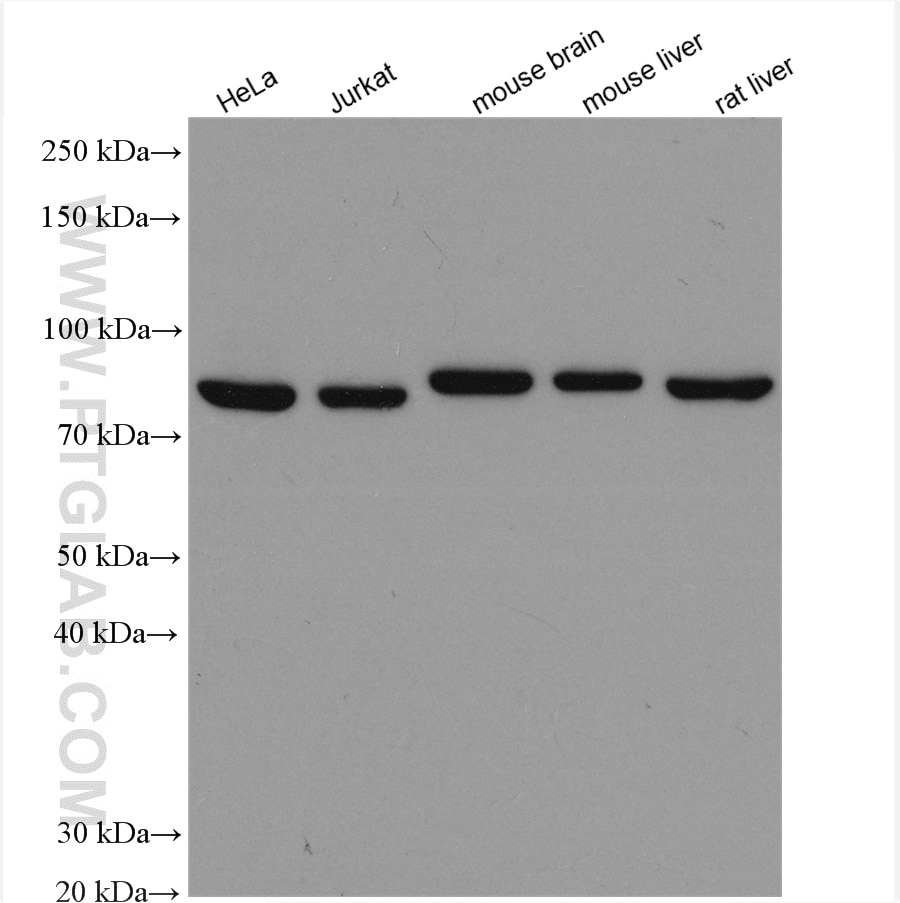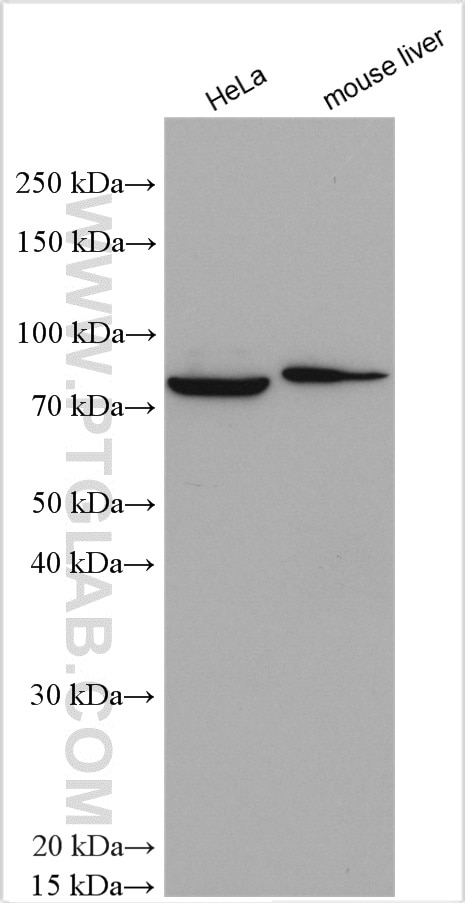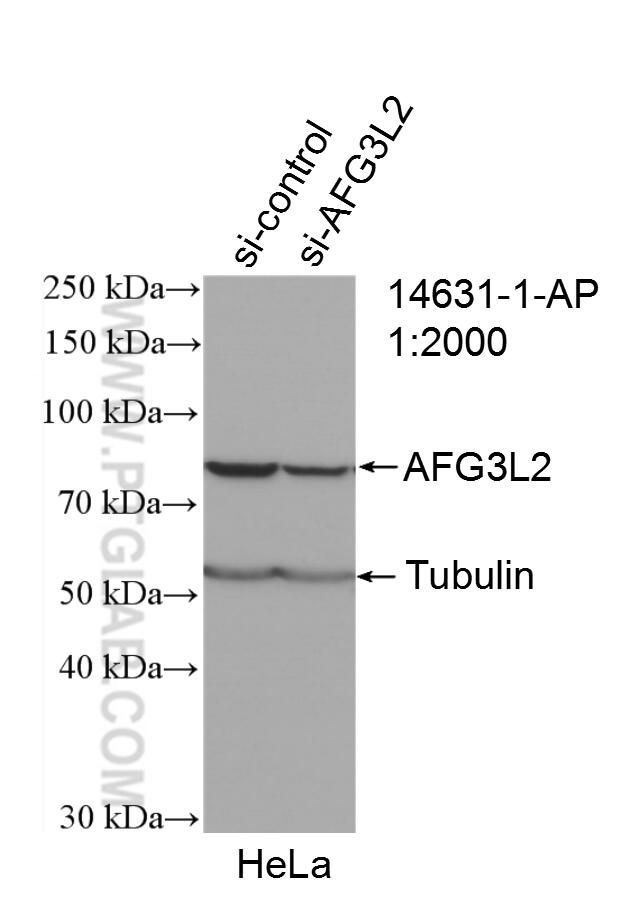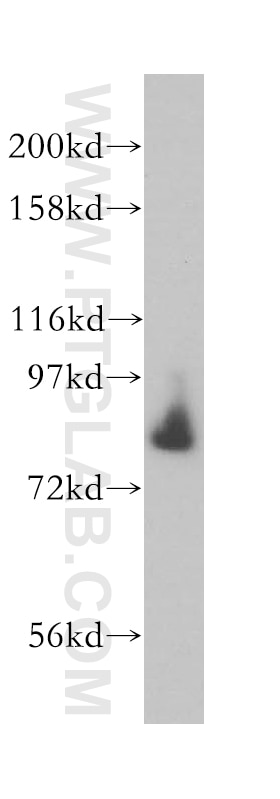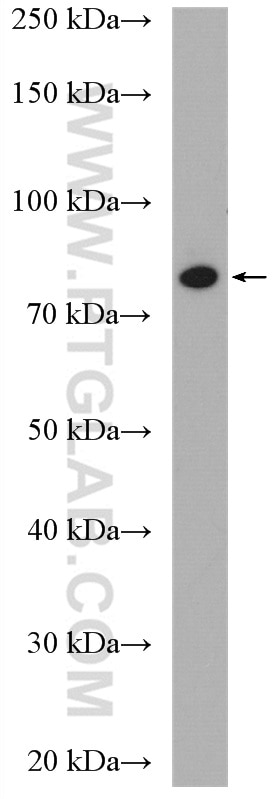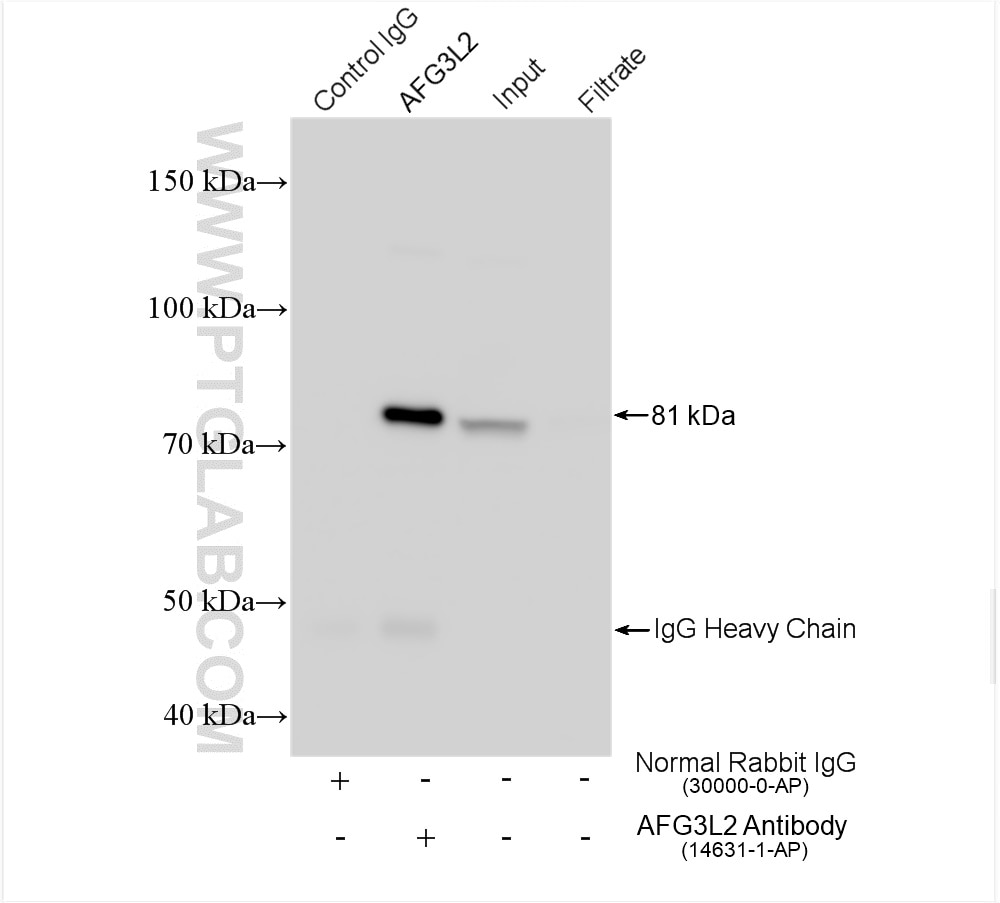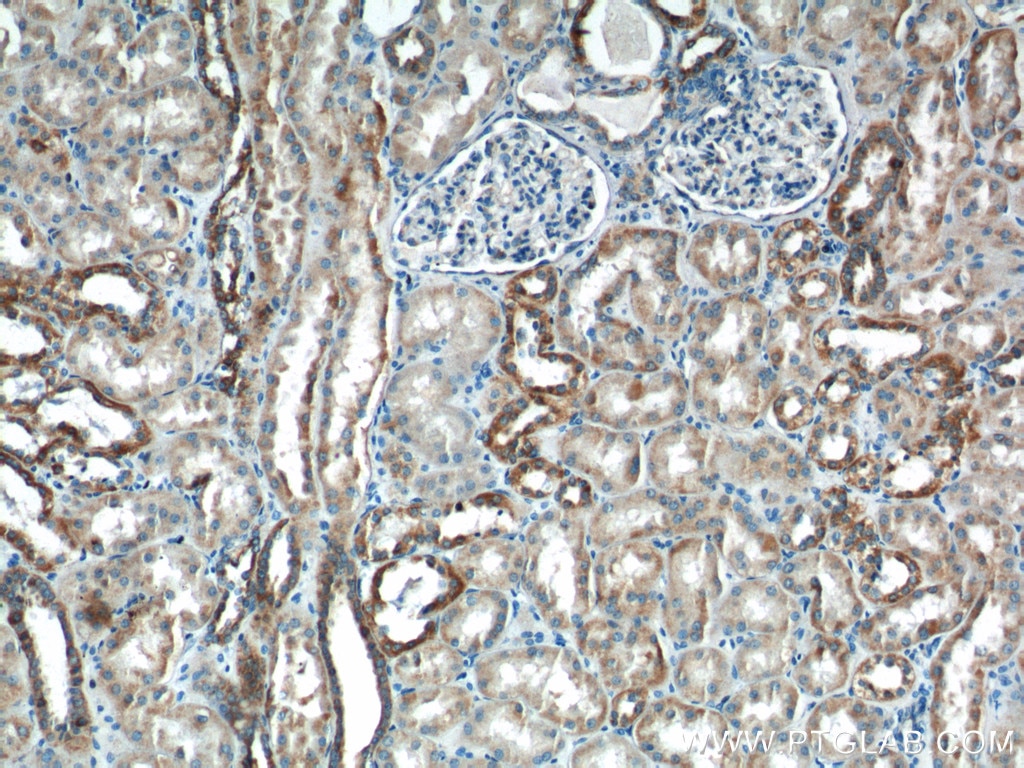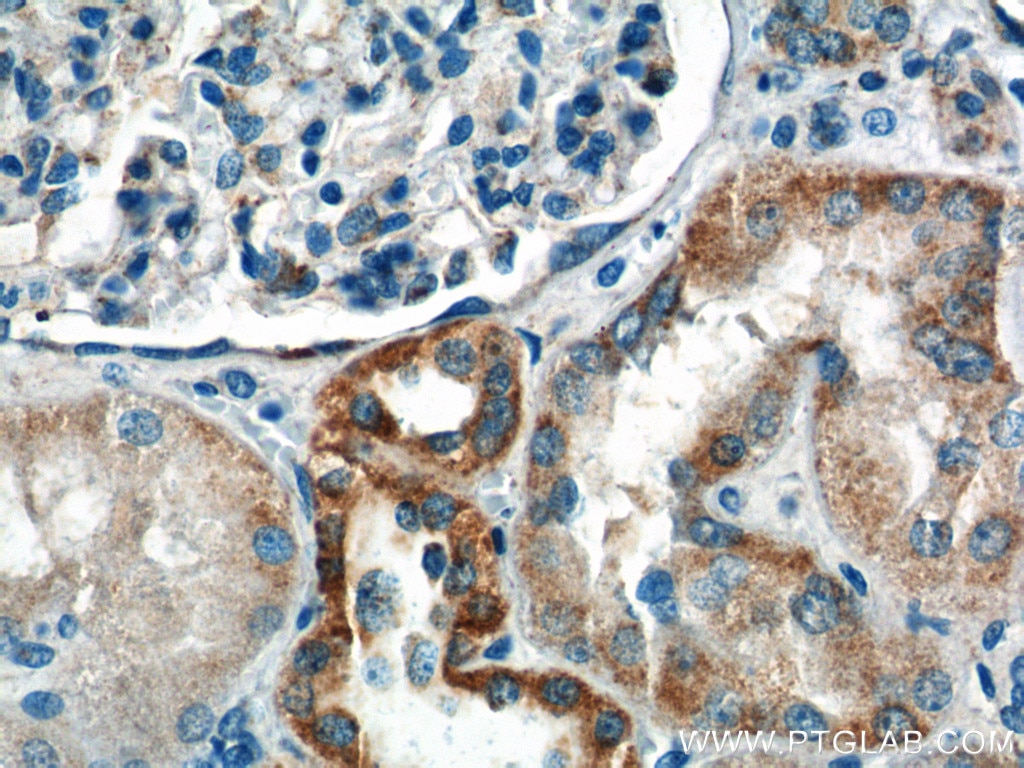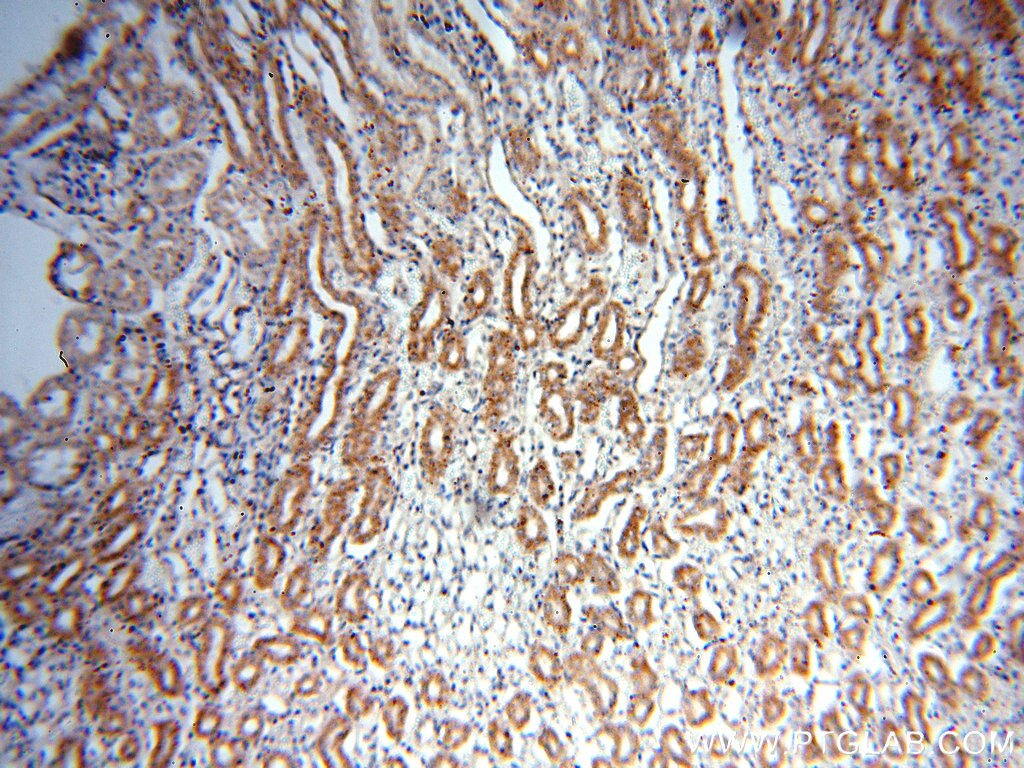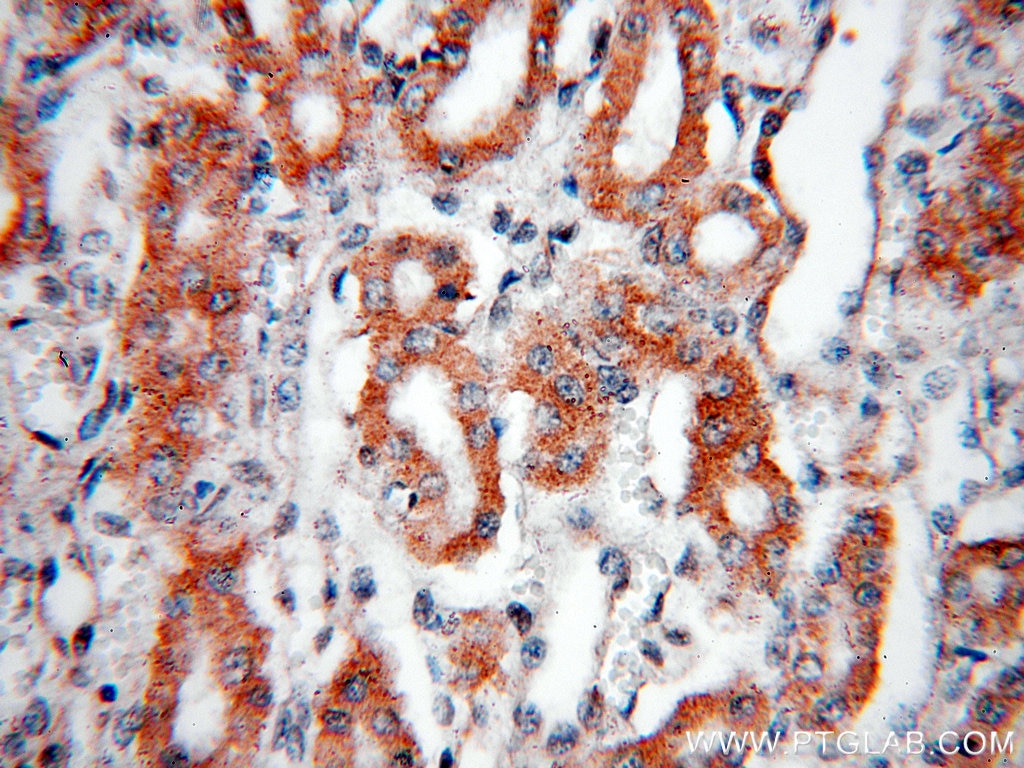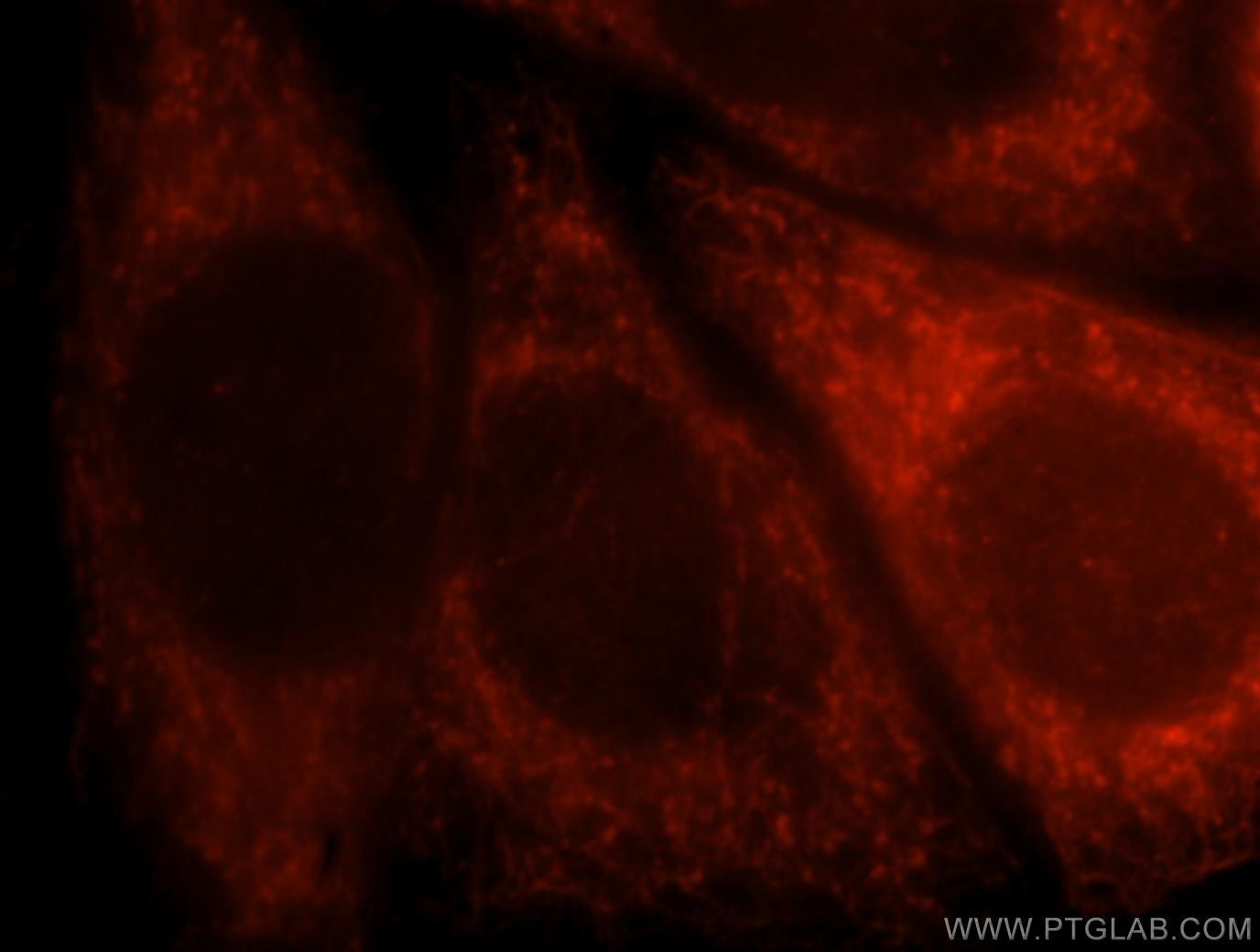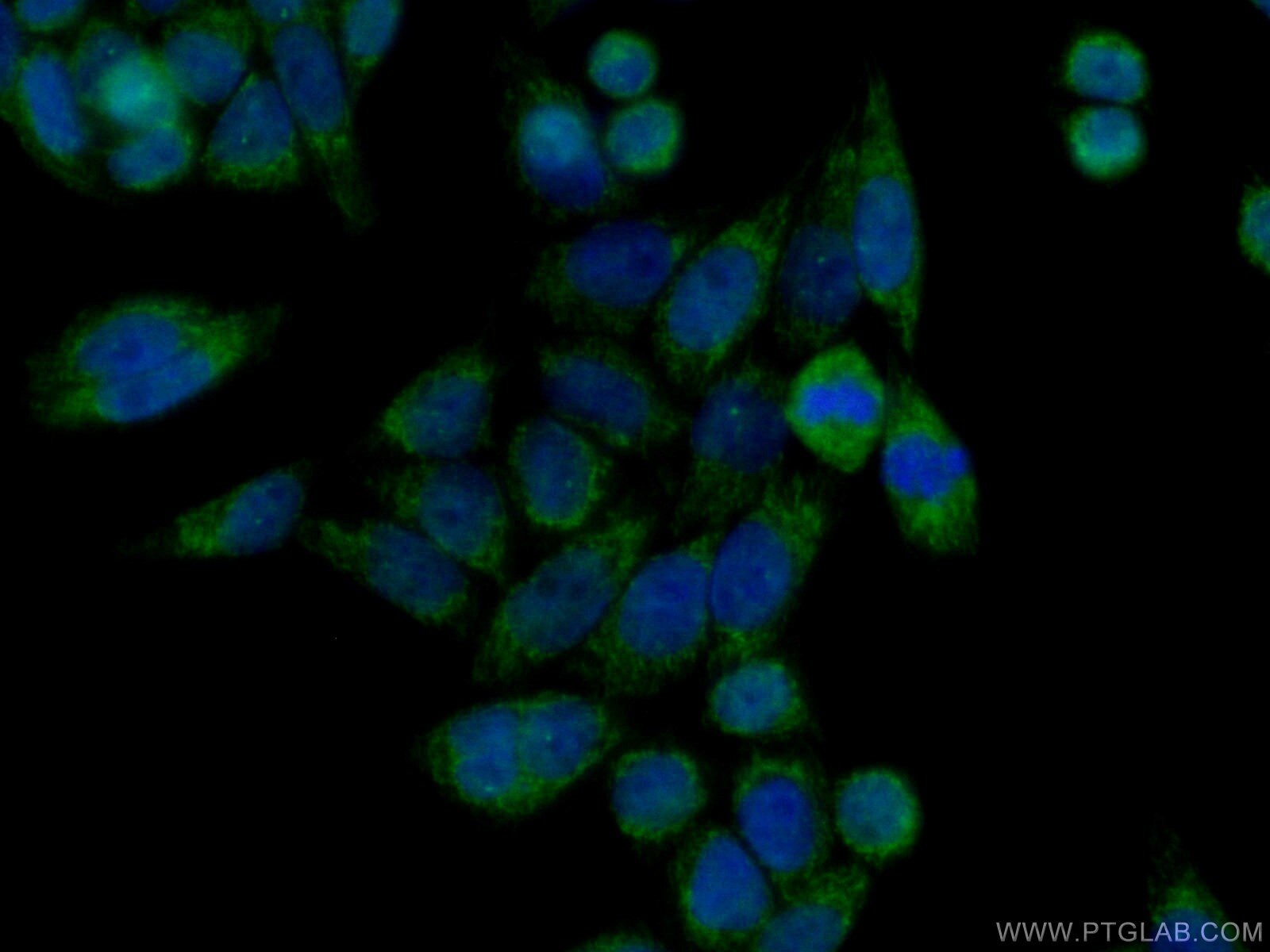- Phare
- Validé par KD/KO
Anticorps Polyclonal de lapin anti-AFG3L2
AFG3L2 Polyclonal Antibody for WB, IHC, IF/ICC, IP, ELISA
Hôte / Isotype
Lapin / IgG
Réactivité testée
Humain, rat, souris et plus (1)
Applications
WB, IHC, IF/ICC, IP, ELISA
Conjugaison
Non conjugué
N° de cat : 14631-1-AP
Synonymes
Galerie de données de validation
Applications testées
| Résultats positifs en WB | cellules HeLa, cellules Jurkat, tissu cérébral de souris, tissu de muscle squelettique de souris, tissu hépatique de rat, tissu hépatique de souris, tissu rénal de souris |
| Résultats positifs en IP | cellules HeLa, |
| Résultats positifs en IHC | tissu rénal humain il est suggéré de démasquer l'antigène avec un tampon de TE buffer pH 9.0; (*) À défaut, 'le démasquage de l'antigène peut être 'effectué avec un tampon citrate pH 6,0. |
| Résultats positifs en IF/ICC | cellules HepG2, cellules HeLa |
Dilution recommandée
| Application | Dilution |
|---|---|
| Western Blot (WB) | WB : 1:2000-1:16000 |
| Immunoprécipitation (IP) | IP : 0.5-4.0 ug for 1.0-3.0 mg of total protein lysate |
| Immunohistochimie (IHC) | IHC : 1:100-1:400 |
| Immunofluorescence (IF)/ICC | IF/ICC : 1:10-1:100 |
| It is recommended that this reagent should be titrated in each testing system to obtain optimal results. | |
| Sample-dependent, check data in validation data gallery | |
Applications publiées
| KD/KO | See 7 publications below |
| WB | See 30 publications below |
| IF | See 1 publications below |
| IP | See 3 publications below |
Informations sur le produit
14631-1-AP cible AFG3L2 dans les applications de WB, IHC, IF/ICC, IP, ELISA et montre une réactivité avec des échantillons Humain, rat, souris
| Réactivité | Humain, rat, souris |
| Réactivité citée | Humain, poisson-zèbre, souris |
| Hôte / Isotype | Lapin / IgG |
| Clonalité | Polyclonal |
| Type | Anticorps |
| Immunogène | AFG3L2 Protéine recombinante Ag6209 |
| Nom complet | AFG3 ATPase family gene 3-like 2 (yeast) |
| Masse moléculaire calculée | 88 kDa |
| Poids moléculaire observé | 80-90 kDa |
| Numéro d’acquisition GenBank | BC065016 |
| Symbole du gène | AFG3L2 |
| Identification du gène (NCBI) | 10939 |
| Conjugaison | Non conjugué |
| Forme | Liquide |
| Méthode de purification | Purification par affinité contre l'antigène |
| Tampon de stockage | PBS with 0.02% sodium azide and 50% glycerol |
| Conditions de stockage | Stocker à -20°C. Stable pendant un an après l'expédition. L'aliquotage n'est pas nécessaire pour le stockage à -20oC Les 20ul contiennent 0,1% de BSA. |
Informations générales
AFG3L2 is the catalytic subunit of the m-AAA protease, an ATP-dependent proteolytic complex of the mitochondrial inner membrane that degrades misfolded proteins and regulates ribosome assembly(PMID:17101804). Human AFG3L2 is an 80-kDa protein encoded by a 17-exon gene and highly and selectively expressed in human cerebellar Purkinje cells(PMID:20208537) and it can exsit as a truncated 65 kDa protein(PMID:18337413). Defects in AFG3L2 are the cause of spinocerebellar ataxia type 28 (SCA28) and spastic ataxia autosomal recessive type 5 (SPAX5).
Protocole
| Product Specific Protocols | |
|---|---|
| WB protocol for AFG3L2 antibody 14631-1-AP | Download protocol |
| IHC protocol for AFG3L2 antibody 14631-1-AP | Download protocol |
| IF protocol for AFG3L2 antibody 14631-1-AP | Download protocol |
| IP protocol for AFG3L2 antibody 14631-1-AP | Download protocol |
| Standard Protocols | |
|---|---|
| Click here to view our Standard Protocols |
Publications
| Species | Application | Title |
|---|---|---|
Mol Cell The mitochondrial DNAJC co-chaperone TCAIM reduces α-ketoglutarate dehydrogenase protein levels to regulate metabolism
| ||
Mol Cell Mechanisms and significance of tissue-specific MICU regulation of the mitochondrial calcium uniporter complex
| ||
Sci Adv Fidelity of translation initiation is required for coordinated respiratory complex assembly. | ||
Nucleic Acids Res Asymmetrical effects of deafness-associated mitochondrial DNA 7516delA mutation on the processing of RNAs in the H-strand and L-strand polycistronic transcripts. | ||
Cancer Res Pooled CRISPR Screening Identifies P-Bodies as Repressors of Cancer Epithelial-Mesenchymal Transition |
Avis
The reviews below have been submitted by verified Proteintech customers who received an incentive for providing their feedback.
FH Boyan (Verified Customer) (04-28-2023) | clean band around the expected size
|
